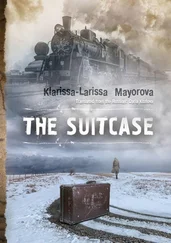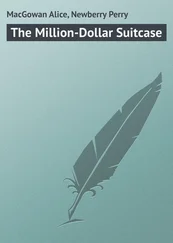And is that such a hard thing to provide?
Misha scratched the back of his head. There was this one girl, Lisa, a Spanish translator, not drop-dead, but sexy. Big tits. And smart as shit. Spoke like fifteen languages. We dated. After several months, several outta-this-world months, I must admit, she made the inexplicable move of leaving her husband. Scared the crap out of me. I was young. Zero regard for the average human’s timeline. Later I discovered that a brilliant, sexy, down-to-earth girl in this city — not as common as one might think.
And what about her now, this Eliza?
Lisa — remarried, two kids, lives in a wealthy suburb outside Paris. But maybe it’s for the best. She liked Tolstoy over Dostoevsky and had teeth so large her lips didn’t meet.
They paused on a scorching corner alongside a construction fence and a stretch of road being drilled into. They had arrived. Yes, really. Misha explained that as of recently this was home to all things visually groundbreaking. He pushed his shades up his slippery nose. Now they would make the rounds. Five, or was it fifteen, blocks of galleries, many of which were sure of little but their names.
It was necessary to see only a fraction of Chelsea in order to stop wanting to master it. What had Pasha imagined? That was unclear. In fact, in his disappointment he forgot that he’d imagined nothing, having come with no expectations. What he found were industrial spaces, blinding neon lights, maniacal wall scrawlings preserved with such care it was as if they were from the dawn of time, flashing signs, buttons to press, levers to manipulate, a heap of recyclables, something vaguely totemic, prim girls paired with oversize desks, an upside-down dining table, footstep echoes, a defeated feeling, white, an elephant made from ostrich feathers — but no wine. Misha charged at the desk with hair to ascertain the situation.
Only at the openings, he reported back with a shrug. In the background, a recording of a woman’s staccato shriek played on a loop, as if she were being torn to shreds and eaten alive, which had about as unnerving an effect on them as a pestering fly. Meanwhile no sign of Gerbil. Misha acquired a stricken look.
They stepped outside, letting the sky drop over them like an old quilt. Headaches were like electronics-store flyers — you had one before you realized you had one. Both of them privately wondered whether they could just abort and go home. On such hot days in the city, people were known to walk out on their families, even their jobs, so what was a friend who lived on the other side of the globe?
Misha went around the corner to check for Gerbil, returning solo but with a brilliant idea: the flea market. He’d remembered Pasha’s dedication to the one in Moldavanka, that gathering of useless objects laid out on bedbug-ridden blankets or wobbly tables by Ukrainians who sat on rickety stools, a bottle tucked behind their feet, soggy bread in their fists. Misha had never understood why objects with no inherent value should suddenly acquire it when lumped together, but for Pasha the market had been a passion.
Pasha’s gloom lifted. For two hours he was transfixed by junk, of which he acquired a fair amount. His bags were so heavy that dinner had to be at the diner one block away. Collapsed into a booth, Misha sighed with exhaustion, Pasha with contentment. A miserably thin waitress appeared overhead, prompting menu misunderstandings, what was what, so many pages, each item trailing a baffling list of ingredients, all overlapping. Pasha made a joke that it was like the poems of someone Misha didn’t know, and the waitress disappeared. Hamburgers arrived, deconstructed, plastic-looking tomato and onion slices fanned out on giant plates.
Misha had kept his accomplishments to himself long enough. He began to spew. There was a residency in Montana for which he was a semifinalist, a book of stories coming out in Germany next spring, a reading he was asked to do with a très famous Russo-Francophone novelist whose name he couldn’t reveal. I’d tell you, but I’m under contract to keep the matter private. Pasha didn’t press. Misha had more breath stored up but had run out of things to say. He raised his fork, perplexed.
Pasha wasn’t coordinated enough to tackle his burger. After he’d tried various strategies, the patty was chopped up into tiny pieces, which were chewed only on the left side of his mouth. Whenever the meat snuck over to the right, Pasha winced in pain.
The teeth were tea-stained, wobbly; there were gaps, silver crowns, recessed gums swollen with blood. Misha ran his tongue over his own set, where order reigned, but was only partially reassured. A clammy streak formed at his taut hairline. Any doubts as to the benefit of immigration could be assuaged by one glance into Pasha’s mouth. Pasha didn’t notice the horror with which he was being analyzed. The bags applied a pleasant pressure to his feet, the way a securely potted plant must feel.
How’s Marina doing? Misha managed to ask, though not without his ears turning the shade of Pasha’s grape juice. The infatuation had begun early on. Marina wasn’t yet twelve when Misha began eyeing her nervously. The frequency of his visits intensified. Often he’d drop by when he knew that Pasha was at chess club or in detention or under the guise of chess club or detention attending samizdat activities that Misha was too cowardly to join. When Marina bloomed officially, Misha lost his capacity for speech and practically moved into the Nasmertov household. He once obtained permission to play with Marina’s beheaded dolls (proof of Pasha’s capacity for violence), but no further progress was made. Though at first his presence served to highlight Pasha’s absence, eventually he was accepted as a surrogate. After years of inept wooing, Misha’s only success was with Esther. His emigrating was detrimental to Pasha in that once again son services were in demand.
She’s fine, said Pasha. He’d give no more. First of all, she wasn’t a woman but his sister. Second of all, she was hardly a critical subject.
What were the critical subjects? And why did it feel as if they were forbidden to broach? Had the weighty material been sectioned off? They had to make do with surrounding nonsense, barred from drawing closer to anything of substance. Maybe it was just too obvious to ask the obvious questions. Or maybe they feared that if those subjects were too quickly exhausted, nothing would be left and the hollowness of their friendship would be exposed. They clung to the general stuff, steered clear of secret vulnerable wealth.
A lady named Ostraya, said Pasha. Do you know her?
Try not knowing her! She’s a character, a larger-than-life personality, said Misha, instantly reminded by the phrase’s taste of having used it not long ago. Embarrassment invigorated his chewing.
She talked my ear off the other night, said Pasha.
That means she likes you. With me she’s an ice queen — I think because I never dug her, physically.
She can’t like me — we haven’t met.
She’s heard good things, then.
A gaping void opened up, about the size of Pasha’s book. Or not so gaping — a hundred and twelve pages, to be exact. Pasha’s first collection, Ancestral Belt , had been published last year. Not only did Misha know about it, he had a copy. After finding it in his mailbox, he’d called Pasha. Congratulations. The thing’s a beauty. Can’t wait to read it. And then — nothing. But there was an unexpected breadth of response from strangers with no reason to read poems about Pasha’s dead family members. The book was receiving a cadenced, still-unfolding, thoughtful and respectful reception; it was following an aberrant trajectory, gathering momentum in erratic increments, by elusive means.
Читать дальше












